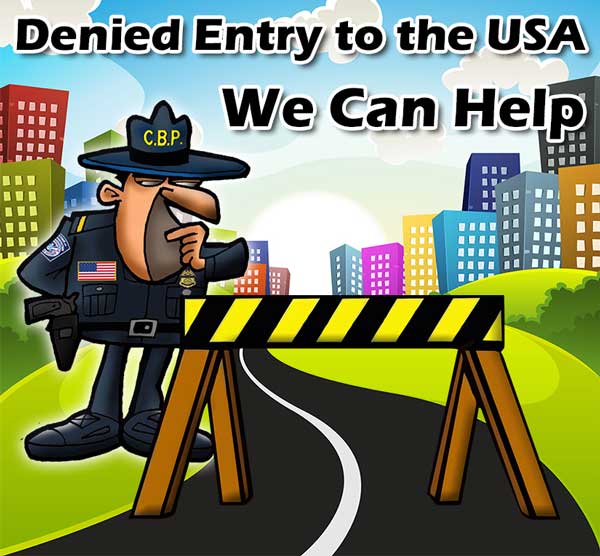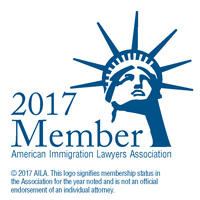Denied entry to the USA from Canada Eh? We can help. While many Canadians stream across the United States border without problem, some find that they are stopped and refused entry because they are inadmissible to the United States. If they are going to be allowed to enter the United States they need an inadmissibility waiver. This waiver is often called an I-192 waiver because the grant of it is a waiver of the grounds of inadmissibility, and with an approved waiver you will be allowed to enter the United States.
Why You Need an Admissibility Waiver – Grounds of Inadmissibility
Before discussing this waiver for inadmissibility further, we go over why someone would need the waiver, why they are inadmissible, in the first place. The vast majority of inadmissible Canadians who cannot travel to the United States are inadmissible because of a criminal conviction. Examples of crimes that tend to cause the biggest problems are offenses related to drugs, and offenses that are considered crimes of moral turpitude. Examples of this latter category are theft offenses. Besides criminal convictions, a common reason that Canadians are refused entry to the USA is violations of US immigration law. Examples of this are misrepresentations to Customs and Border Patrol (CBP) officers at the border while seeking entry to the United States. It is possible to combine both the criminal conviction and the misrepresentation together. If a CBP officer asks have you been convicted of any crimes, and you are aware of a conviction for a shoplifting offense 15 years ago, but denied that you have ever been convicted of any crimes, it is likely that the CBP officer will find the criminal conviction for shoplifting in the Canadian criminal database to which he or she has access. Such a discovery by the CBP officer will likely result in the Canadian being refused entry on two grounds, the criminal conviction itself, and making a misrepresentation about it.
Application for a Nonimmigrant Waiver of Inadmissibility
Canadians who have this inadmissibility problem can request a nonimmigrant waiver of inadmissibility on form I-192, application for advance permission to enter as a nonimmigrant. As you might expect, there’s a lot more to a waiver application than simply completing a form. You will need to get a certified record of conviction from the Royal Canadian Mounted Police. You will also need to prove that you’re a Canadian citizen or a landed immigrant. The documentary requirements of the visa application itself are quite simple. Where it gets more difficult is in arguing your case under the appropriate legal standard for admission, grant of the waiver. While all waiver applications are submitted to CBP at either Ports of Entry (POE) or preclearance ports like those at major Canadian airports, Calgary and Toronto, the CBP office simply acts as a processing center to fingerprint the applicant and collect the appropriate fee. Once the CBP officer accepts the application it is sent to the Admissibility Review Office (ARO) for adjudication. A single office adjudicates all these nonimmigrant waiver requests so that they can be adjudicated to a uniform standard.
Legal Standard for Evaluating Waiver Applications
All applications for a nonimmigrant waiver to the United States are evaluated against a standard set forth by the Board of Immigration Appeals in 1978 in a case called Matter of Hranka. This case instructs that the ARO must evaluate an application by considering first, the risk of harm to society in the United States if the applicant was admitted. The second factor is the seriousness of the violation. Lastly, the applicant must have reasons for entering the United States. It is making a compelling case in this required legal argument that needs to accompany all waiver applications that can prove difficult, and where the services of an experienced waiver attorney can be invaluable.
How Immigration Law of Montana Can Help You with a Waiver Application
Immigration Law of Montana has a lot of experience preparing waiver applications for Canadians who are inadmissible to the United States for both, criminal convictions and immigration violations. We can assist you through all the steps of inadmissibility waiver process, including preparing an application that will be accepted by CBP and counseling the applicant how to best represent the application when submitting it. Our legal arguments have found favor with the ARO and our clients have used the waiver of inadmissibility to successfully enter the United States. Please contact us if you would like our assistance with an admissibility waiver to enter the United States.

